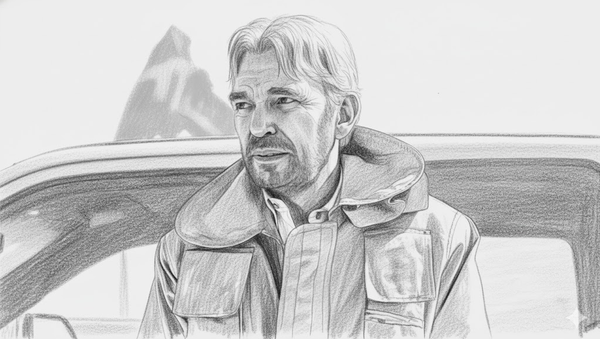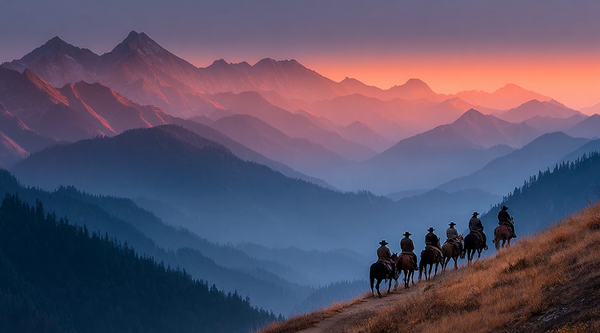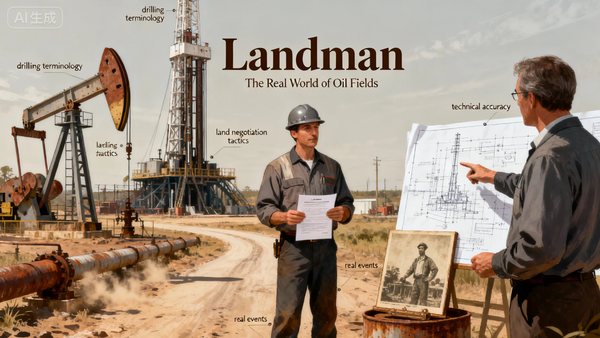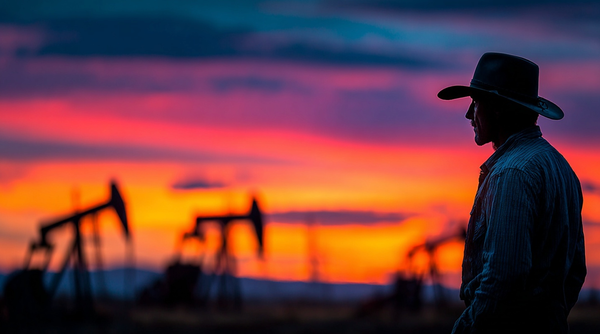Yellowstone’s Red-State Triumph: How Hollywood Forgot to Take Rural America Seriously
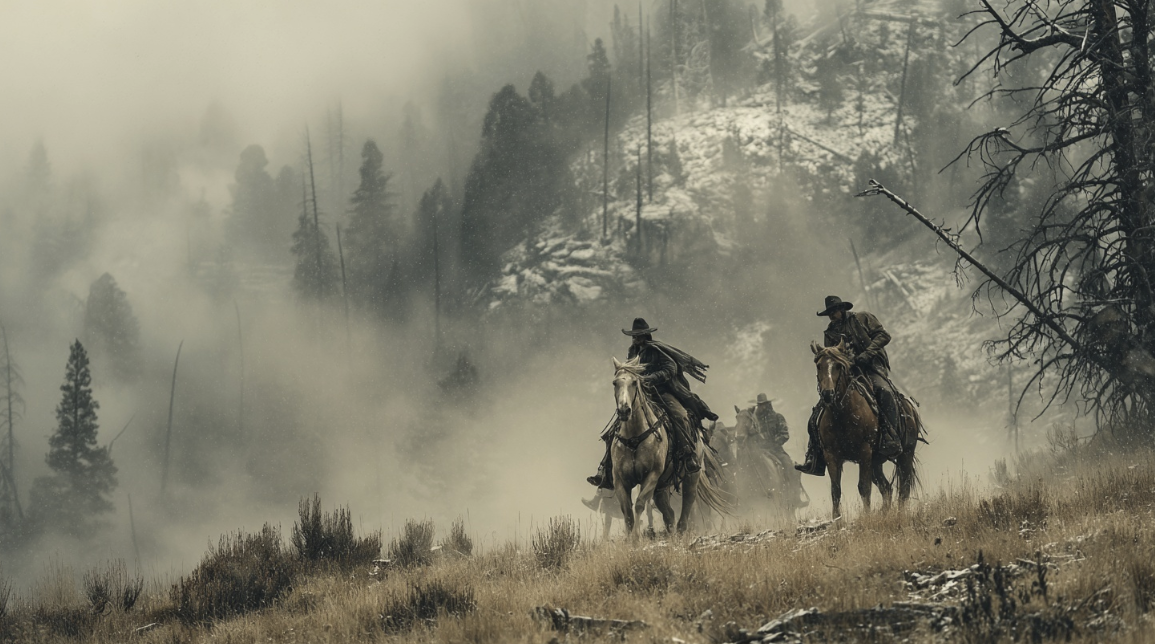
Rural America has been the punchline in mainstream entertainment for decades. The backwards townspeople who need the sophisticated outsider to teach them tolerance. The conspiracy theorists in MAGA hats. The comic yokels with provincial concerns and limited intelligence. The obstacles to progress that protagonists must overcome or escape.
Even in sympathetic portrayals, rural characters exist primarily to learn lessons about why their traditional views need updating.
Then Yellowstone arrived.
Taylor Sheridan's neo-western drama about a Montana ranching family exploded into cultural phenomenon precisely because it did something Hollywood had forgotten how to do: take rural America seriously on its own terms. The show became the most-watched scripted program on television not despite its conservative themes but because of them. In flyover states, Yellowstone isn't just entertainment—it's cultural validation audiences had been starving for.
The coastal entertainment establishment missed this entirely. Critics dismissed the show. Emmy voters ignored it despite massive viewership. Cultural arbiters couldn't understand what audiences saw in what they considered soap opera with cowboys.
This blindness itself became part of Yellowstone's red state appeal. Finally, here was entertainment so authentically connected to rural values that the urban experts didn't even recognize it was happening.
The unseen America that mainstream media forgot
The United States contains approximately 60 million people living in rural counties. They represent roughly 20% of the population but less than 1% of television and film representation that isn't explicitly framing them as problematic.
This invisibility isn't benign neglect. Rural Americans watch the same entertainment as everyone else. They see themselves depicted as obstacles, jokes, or problems requiring solutions. When they appear at all, they're usually there to represent ignorance that needs correcting or narrow-mindedness that needs expanding.
The message comes through clearly: your values are outdated, your way of life is disappearing, your resistance to change is moral failing, and the sooner you accept cosmopolitan progressive values the better.
Yellowstone reverses this completely.
The sophisticated outsiders are antagonists. The developers with expensive suits and glossy presentations are threats to be fought. The progressive activists with their environmental concerns are obstacles lacking practical understanding. The politicians promising growth and modernization are enemies of everything that matters.
Meanwhile, the ranch community with its traditional hierarchies, its generational land ownership, its rough justice and personal loyalty—that's portrayed as valuable, worth defending, morally legitimate.
For audiences who've spent careers being told implicitly that they're the problem with America, this reversal is profound. Yellowstone says: you're not backwards. Your values aren't shameful. Your way of life has meaning worth fighting for.
Authenticity that Hollywood can't fake
Taylor Sheridan didn't arrive in Hollywood through typical channels. He grew up in rural Texas, worked on ranches, understands that world from inside. When he creates characters who rope and ride and brand, he knows what he's showing. When they talk about land management, water rights, market conditions for cattle—that's not Hollywood approximation of what rural people might discuss. It's actual knowledge.
This authenticity permeates every element. The Yellowstone production hired real cowboys as wranglers and consultants. The actors learned actual ranch skills. The landscape isn't just pretty backdrop but character itself, shaping action and meaning. The pacing reflects rural rhythms where nothing happens for long stretches then everything happens at once.
Even the show's moral framework emerges organically from the world rather than being imposed. Loyalty matters more than legality because institutions are distant and unreliable. Personal relationships create obligations that transcend formal contracts. Reputation is currency. Keeping your word is fundamental to identity.
Red state audiences recognize this immediately. It's not Hollywood people researching rural life and creating approximation. It's someone from that world depicting it authentically.
The distinction matters enormously. When network television shows feature rural characters, they're usually vehicles for teaching tolerance or overcoming prejudice. They exist to represent views that protagonists must challenge or transcend. They're not fully realized humans with legitimate perspectives—they're obstacles or learning opportunities.
Yellowstone's characters are complex people with internal logic to their values and choices. They're not waiting for the sophisticated outsider to arrive and show them better ways. They have wisdom the outsiders lack. They understand things about land, community, and loyalty that Harvard MBAs never learned.
The economic anxieties nobody wants to discuss
The Dutton ranch operates in constant economic precarity. Cattle ranching margins are thin. Property taxes on millions of acres are crushing. Legal fees from constant conflicts drain resources. Wealthy corporations and individuals can simply outspend them in any sustained battle.
This isn't abstract backdrop—it's the daily reality for family operations across rural America.
Small family farms are disappearing. The past several decades have seen relentless consolidation as large agricultural corporations buy out small operations. Young people leave for cities with better economic opportunities. Traditional rural industries face pressure from regulation, automation, and changing markets.
Meanwhile, wealthy outsiders discover that remote work enables them to live in beautiful rural places while earning coastal salaries. They buy property, driving prices beyond what longtime residents can afford. They import different expectations about how communities should function, how land should be used, what values should guide local decisions.
Yellowstone dramatizes this as invasion. Market Equities Corporation doesn't just want to buy land for market value and develop it according to their vision. They represent wholesale replacement of rural culture with something that serves wealthy outsiders' desires.
When Thomas Rainwater's development partner proposes building an airport and resort town, the pitch emphasizes jobs and tax revenue. It sounds reasonable in boardrooms. But the Duttons understand what the glossy presentation obscures: this "development" will price out longtime residents, replace authentic community with tourist-oriented fakery, and fundamentally destroy the character that makes Montana valuable in the first place.
Red state viewers don't need the show to explain this. They're living it. Their towns are changing. Property values are exploding beyond local wages. New residents arrive with money and certainty that their preferences should reshape the community. Long-term residents feel like strangers in places their families have lived for generations.
The show validates their anger about this. It's not just economics. It's cultural colonization by people who view rural values as backward obstacles to be overcome.
When traditional masculinity isn't toxic
Rip Wheeler is Yellowstone's clearest statement about traditional masculine virtues.
He's physically capable—can handle ranch work that breaks most men. He's fiercely loyal to the Duttons who gave him purpose when he had nothing. He's protective without being controlling. He's violent when necessary but disciplined about it. He keeps his word absolutely. He respects hierarchy while maintaining dignity. He builds rather than just consumes.
Modern entertainment typically treats men like Rip with deep suspicion. Traditional masculinity is "toxic." Physical capability without sophisticated emotional processing is dangerous. Comfort with violence reveals pathology. Hierarchical thinking is inherently problematic.
Yellowstone presents Rip as heroic. His traditional masculine traits aren't limitations or character flaws requiring growth. They're virtues that enable him to function effectively, protect people he loves, and live with purpose and meaning.
For male viewers bombarded with messages that their instincts are problematic, that traditional masculine values are shameful markers of how outdated they are, Rip offers validation. You can be tough, physical, protective, hierarchical—and be admirable rather than toxic. Your values aren't evidence of moral failing but legitimate expressions of human nature.
The show's female characters complicate any simple reading. Beth Dutton is ruthless in business, drinks heavily, swears constantly, and has zero interest in conventional female behavior. Yet she's also devoted to family, ultimately wants traditional domestic life with Rip, and channels her aggressive energy toward defending the ranch rather than purely selfish goals.
Yellowstone doesn't force characters into simple traditional or progressive gender categories. But it consistently validates the idea that traditional gender patterns serve purposes, that masculine and feminine energies complement rather than compete, that the nuclear family structure provides foundation for meaning.
The frontier justice that institutions can't provide
The Duttons murder people. They disappear bodies at a remote location called "the train station." They beat suspects. They take justice into their own hands with barely a second thought about legal process.
The show's treatment of this violence is crucial: it's presented as regrettable necessity rather than moral failing.
Why? Because institutions have failed. Law enforcement is overwhelmed. Politicians are corrupted by money. Lawyers tie everything up in endless process. By the time institutional justice might theoretically work, the damage is done and threats have multiplied.
So the Duttons handle things themselves. They operate under a frontier moral framework where justice is personal responsibility, where you protect what's yours through direct action, where legal process is secondary to actual outcomes.
This resonates powerfully with conservative audiences who view modern institutional frameworks as ineffective bureaucracies that constrain law-abiding citizens while protecting criminals. The Duttons do what many rural Americans fantasize about: cutting through red tape and directly addressing threats.
The show doesn't present this as unproblematic. Characters struggle with moral costs. Violence escalates and traps them in cycles they can't escape. Innocent people suffer collateral damage. But the fundamental premise—that sometimes you must defend what's yours through force because institutions won't protect you—is validated rather than condemned.
This reflects conservative gun culture, castle doctrine laws, and the deep American tradition of self-reliance that predates modern government. The Duttons are doing what frontiersmen always did: protecting their families and property through personal capability because no cavalry is coming to save them.
Land as identity, not just asset
The distinction between how the Duttons view their ranch and how outsiders view it explains much about the show's red state resonance.
To developers, lawyers, and politicians, the Yellowstone Dutton Ranch is property—valuable asset that could be put to different uses generating more economic value. If market forces or social needs dictate different use, attachment to current use seems sentimental.
To the Duttons, the ranch is inseparable from who they are. John Dutton inherited it from his father and grandfather. His identity is rancher. Not someone who happens to own a ranch he might sell at the right price, but someone whose fundamental self is tied to this specific land.
When developers offer market value, they fundamentally misunderstand the transaction. They think they're negotiating to buy property. The Duttons hear someone offering to buy their identity, history, and purpose.
This resonates with conservative audiences who feel similarly rooted. They're from places. Their families have been in the same communities for generations. They work businesses their grandparents started. Their sense of self comes from continuity and place.
Urban progressive culture celebrates mobility and fluid identity. You can move anywhere, become anyone, reinvent yourself completely. Roots are constraints to escape. Tradition limits potential.
Yellowstone presents rootedness as source of meaning rather than trap. The Duttons' inability to simply leave and start over isn't limitation but foundation of their purpose and values. They're part of something larger than themselves, connected to ancestors who built the ranch and descendants who'll inherit it. This gives life meaning that transcends individual gratification.
The political complexity that frustrates critics
Yellowstone resists simple political categorization in ways that frustrate progressive critics but appeal to its core audience.
The show's treatment of Native American issues provides good example. Thomas Rainwater, chairman of the Broken Rock Reservation, wants the Dutton ranch returned to tribal control. The land was taken through violent displacement. Rainwater's claim has obvious moral weight based on historical injustice.
Yet the show presents both perspectives sympathetically. You understand Rainwater's position while also understanding why John Dutton refuses to surrender land his family has worked for generations. The Duttons didn't personally commit the original injustice. They inherited a situation they didn't create.
This moral complexity validates conservative audiences' resistance to being held personally accountable for historical injustices they didn't commit. The show says: you can acknowledge historical wrongs without accepting personal responsibility to fix everything through sacrifice.
Progressive critics want clear moral frameworks. They want the show to take definitive stance on who's right. Yellowstone refuses. It presents multiple perspectives with internal logic and leaves audiences to grapple with complexity.
This approach appeals to red state viewers tired of being lectured about correct positions on every issue. The show trusts audiences to think rather than telling them what to believe.
Why this moment produced this phenomenon
Yellowstone didn't emerge randomly. It arrived in 2018, during a period of intense political polarization when rural and urban America felt increasingly like separate nations.
The 2016 election had exposed the depth of cultural divide. Trump's success in rural areas wasn't just economic anxiety—it was full-throated rejection of cosmopolitan elite values that rural voters felt had been imposed on them for decades without their consent.
Yellowstone provided cultural parallel. John Dutton is Trumpian in his refusal to moderate, apologize, or accept that progress means abandoning traditional values. His campaign for governor runs explicitly against political establishment, environmental regulations, and outside interference.
But the show is more sophisticated than simple political allegory. It depicts the costs of the Duttons' choices. Characters struggle with moral compromises. The family's methods trap them in cycles of violence they can't escape. Their way of life is genuinely endangered, and no amount of fighting may ultimately save it.
This complexity matters. Yellowstone isn't propaganda—it's mythology. It tells red state America a story about itself that feels true even while romanticized, that validates their values while acknowledging the challenges and costs.
What happens when half the country feels unseen
Yellowstone's massive success in red states while remaining virtually invisible to blue state cultural arbiters reveals something troubling about American fracture.
We're not just politically divided. We inhabit completely separate cultural universes. Different entertainment. Different values. Different stories about what America is and should be. And increasingly, neither side knows or cares what the other is watching.
For decades, rural Americans consumed entertainment created by coastal elites that depicted their values as backwards, their concerns as provincial, their resistance to change as ignorance. They had no alternative that took them seriously on their own terms.
Yellowstone succeeded precisely because it filled that vacuum. It gave rural conservative America what they'd been starving for: entertainment that validates their values, respects their way of life, and refuses to apologize for doing so.
The show's themes resonate because they reflect actual conflicts rural Americans face daily. Economic pressure from wealthy outsiders. Cultural transformation they didn't request or consent to. Institutional frameworks that feel designed to constrain them while protecting people working against their interests.
In John Dutton, they see someone who says what they feel: No. You can't take what's ours. You can't erase our way of life. You can't tell us our values are shameful. We will fight to preserve what matters, and we won't apologize for it.
This unapologetic defense of traditional values—presented not as reactionary stubbornness but as moral duty—is the core of Yellowstone's red state appeal.
The cultural validation audiences were starving for
At its heart, Yellowstone's success stems from something simple but profound: it takes rural America seriously.
It depicts their world authentically. It treats their values as legitimate. It shows their concerns as reasonable rather than backwards. It presents their way of life as worth defending rather than obstacle to progress.
For audiences who've spent decades feeling invisible or contemptible in mainstream entertainment, this validation is powerful beyond measure.
The show says: You're not the problem. Your values aren't shameful. Your resistance to change isn't ignorance. Your way of life has meaning and worth. You're right to fight for what you believe in.
In a fractured nation where different populations consume completely separate media reflecting fundamentally different values, Yellowstone has become more than entertainment for red state America. It's cultural marker, statement of identity, form of resistance.
Every viewer participates in a phenomenon the supposed experts missed, proving that flyover country matters even when coastal elites don't see it. The show's success despite industry indifference validates what rural Americans have always believed: they don't need approval from people who don't understand or respect them.
Yellowstone gave rural conservative America what Hollywood had denied them for decades: entertainment that sees them, respects them, and tells them they're right to defend what matters.
That's why the show conquered red state America. Not because of plot twists or production values, but because it finally told rural audiences what they'd been desperate to hear: your way of life has value worth fighting for, and you don't owe anyone an apology for believing that.
